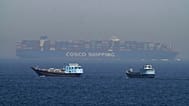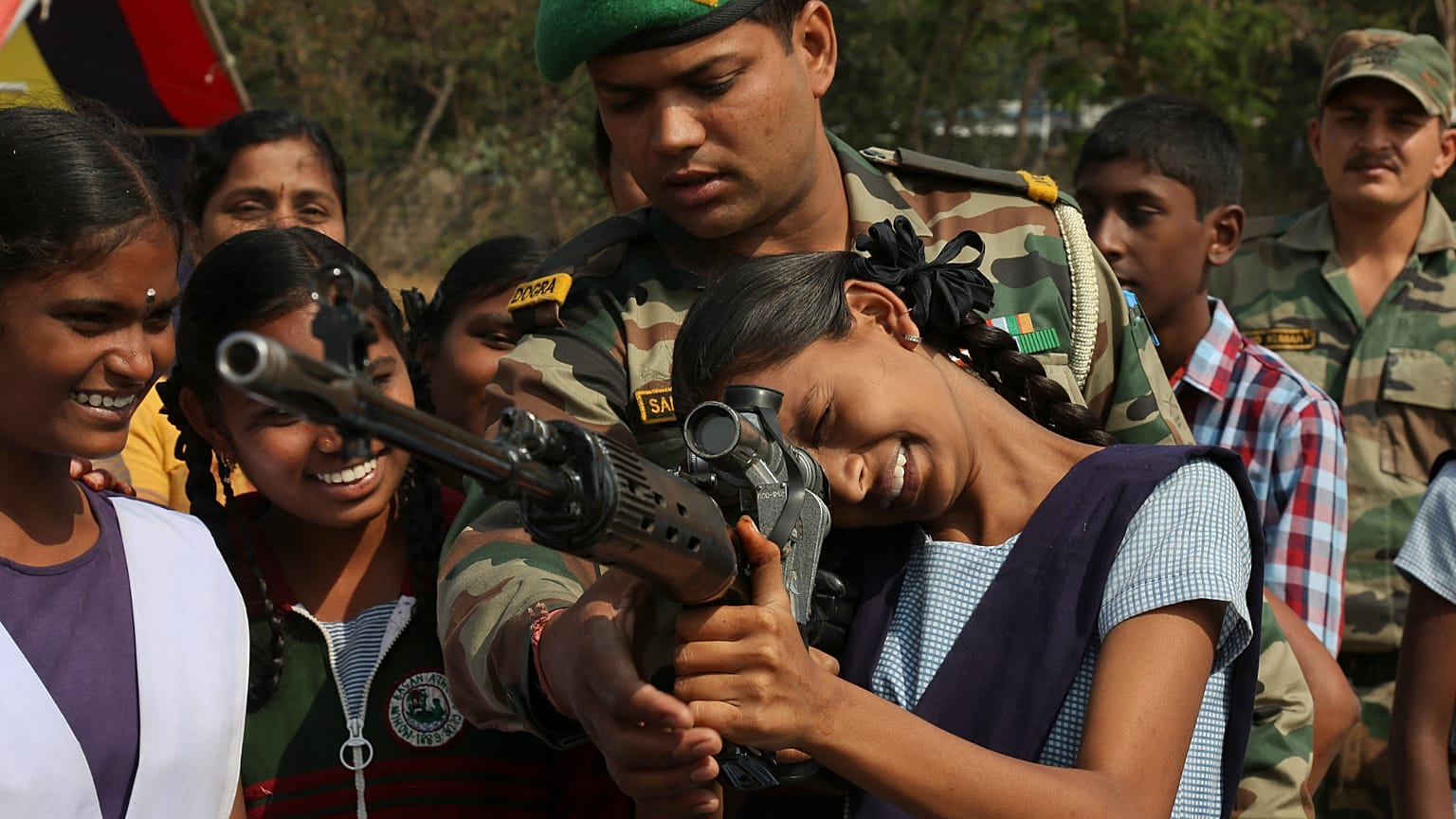Defence and security policies could become the backbone of a new partnership between India and the EU, according to the new EU-India strategy. The document is to be presented on Wednesday by the EU Commission in view of the signature of a €150-billion free trade agreement.
While the EU and India aim to conclude an historic free trade agreement (FTA) soon, the security and defence dimension could play a significant role in the document concerning the EU-India Strategy that the European Commission is presenting on Wednesday.
Sunil Prasad, Secretary General of the EU-India Chamber of Commerce, is "certain that the FTA will be signed between Dheli and Brussels" before December.
Although some obstacles remain, particularly in relation to automotive components, agriculture, wine and spirits, both sides appear ready to make concessions in the name of a bilateral security policy and defence industrial interests as Prasad suggests.
"This is the cooperation that will pave way for the stronger trade and economic relationship."
The war in Ukraine, the military build-up in the Indo-Pacific region and the recent flare-up of violence with Pakistan have brought security and defence at the centre stage in the relationship between New Dheli and the 27 Member States that are eager to cooperate in the defence industrial sector, mostly with EU technology.
"India wants to become a (weapons) manufacturing hub, it's perfectly fine. But at the same time, India needs support from the European Union on this. India cannot do it alone," Prassad says.
Between 10-14 September, the Political and Security Committee (PSC) of the EU travelled to New Delhi for the first time since its creation.
The EU delegation was composed by the 27 ambassadors of the Member States to the EU. They met with senior institutional, political, military and economic figures in India.
PSC Chair, Delphine Pronk, a Dutch diplomat, commented that, "Insights and recommendations gathered from our visit will be presented to the top political leaders of the EU, paving the way for enhanced cooperation (with India)."
The Political and Security Committee is responsible for the EU's Common Foreign and Security Policy (CFSP) and the Common Security and Defence Policy (CSDP).
It coordinates and recommends strategic approaches and political actions options to the EU Council.
The PSC is an EU body that is coordinated by the European External Action Service.
Why do EU and India need to upgrade their partnership?
"It's probably one of the worst kept secrets in Brussels that there is a very strong political alignment that we should have an agreement with India, whatever the cost, and given that our most important export market, which is United States has basically disappeared down into a void," said the author Hosuk Lee-Makiyama, director of the Brussels think-tank, European Centre for International Political Economy (ECIPE).
India's defence budget for 2025–2026 amounts to over €70 billion and New Delhi plans to modernise its navy and air force.
Narendra Modi's government seeks to diversify the military technology base of the Indian army.
Two weeks ago India and Germany struck a deal to manufacture in the South Asian country German designed submarines.
Between 2016 and 2022, New Delhi acquired 62 French Rafale fighter jets and plans to manufacture additional ones in India in cooperation with Paris.
A lecture in full strategic autonomy from India to the EU?
Despite trade and political tensions with the United States, India hosted a visit by US trade representatives on Tuesday with the aim of re-establishing relations between Washington and New Delhi.
Early in August, President Donald Trump signed an executive order threatening to increase India's trade tariff rate from 25% to 50% over its continued purchase of Russian oil.
Only a couple of weeks later, the Indian prime minister attended the Shanghai Cooperation Organisation (SCO) summit in China, and was welcomed with smiles and warm handshakes from Russian President Vladimir Putin and Chinese leader Xi Jinping.
Both European and American observers believed that India would temporarily reorient itself towards its historic rival, China, in response to the trade war declared by the Trump administration.
In addition, around 60 soldiers belonging to one of the Indian Army's best units – the Kumaon Brigade – are currently participating in the Russian-led Zapad military exercises in Belarus, just a few kilometres from the EU's and NATO's borders.
"India is never laying all its eggs in one basket. It's not joining exclusively to one alliance," says Lee-Makiyama.
The Indian army has a considerable number of Russian-made weapons. The presence of some of its military personnel at the Zapad exercises could be linked to the need to observe how they work.
"President Putin is coming to India before December on a state visit and is to sign an agreement for the production of S-400 or S-500 air defence missiles," says Sunil Prasad.
According to Lee-Makiyama "the Indian defence doctrine for half a century at least was based on the fact that they would have to fight American planes, F-16 from Pakistan."
Another divisive issue in security cooperation between India and the EU remains the Pakistan question. India is asking the EU to suspend the General Scheme of Preferences Plus with Islamabad because, in India's eyes, it is an unjustified privilege.
It is, in fact, a trade scheme based on a system of preferences in certain specific sectors, such as textiles, which the EU guarantees to Pakistan, in exchange for its compliance with human rights conventions and good governance principles.















